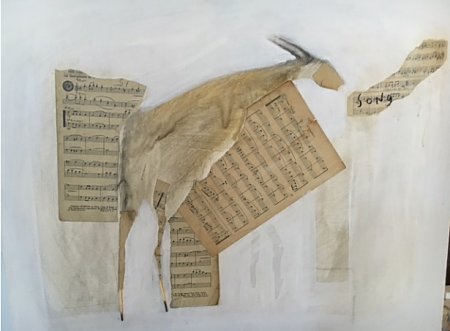
Receptions With the Poet
“Wait a minute,” he said in a voice loud enough to still everyone else. They turned to see who had captured his attention. “Whatever happened to that doctor?” My poor heart cracked at the mere mention of him. Nothing at graduate school had soothed that pain. Now it seemed as if the pages of my undergraduate journal were spread open before the entire room. “I was afraid you were going to marry him,” Mr. Howland said. “I bet your father was worried, too.” My father? What did he know about my father? My father didn’t know what I was doing from one month to the next, much less who I was dating, although it was true that he didn’t like that medical student, had described him as arrogant. But this was never in my journal, so how did Mr. Howland know? “He was too domineering,” Mr. Howland said. Everyone in the room was quiet.
I stood rooted. “Well…” I whispered.
“You’re the kind of girl,” Mr. Howland said, “who could be an old maid.”
“Ted!” one of the women protested, and some of the others chimed in, “How silly, such a pretty girl.”
“Too demanding,” he said.
“Of course she’ll get married,” one of the women muttered, and another said, “Really, Ted, come on now,” and when I could move I turned and walked with as much dignity as possible out the front door and into the warm night. He had betrayed me. Mr. Howland had betrayed me.
Nevertheless, I decided to say goodbye to him the next day before I drove back to Cambridge. Maybe I’d misunderstood. Maybe he could still be my trusted adult. I drove to his farmhouse, and as I was heading across the lawn the front door opened and a young black man in skin-tight clothes came toward me, waving his hand like a girl happy for company. Under his T-shirt was a muscular torso, and the bulge in his tight trousers was remarkably large. Today’s young woman would be far from shocked, would have noticed the clues over the years. But even if he was that way, why would Mr. Howland choose this man, who was walking toward me in a comically dramatic way? Was this a prostitute? Can men be called floozies? “Is Mr. Howland here?” I managed to say.
“No, Sweetie, he’s not here. He’ll be back soon if you want to wait.”
Driving back to Cambridge, I remembered my Greek boyfriend’s comment. Do men sense this sort of thing about each other?
Years later, it was Mr. Howland’s influence that made me flip to the poems first when The New Yorker was delivered to my house in the suburbs of Boston, where I lived with my husband and two children. If I wrote in a journal, it was only to record the cute things my children said.
One day, I read a poem in the magazine written by a woman with the same last name as my best friend from high school. The poem described the poet’s garden, how she found a caterpillar and called to her mother, who came out and said words that showed an appreciation of the mysteries of nature. The mother’s words sounded exactly like my friend Lynn, so I wrote to the poet at The New Yorker and asked if she was my friend’s daughter. She wrote back that my letter had made her weep. She had no idea she had gotten it so right. She gave me her mother’s phone number in New York.
